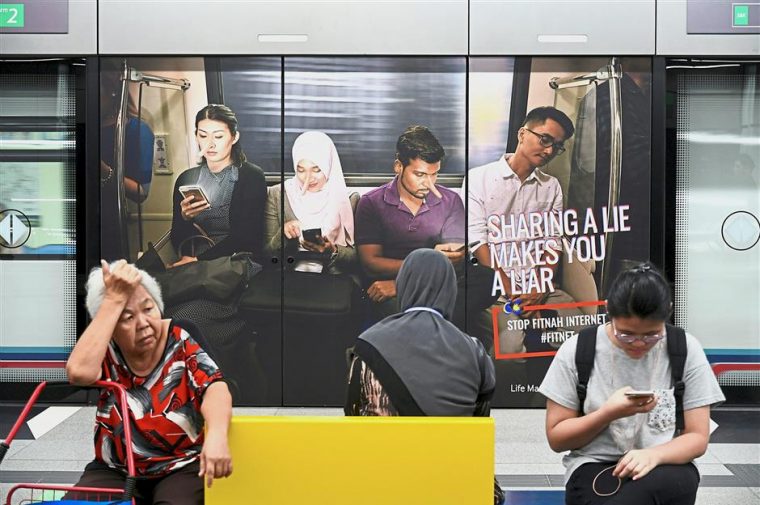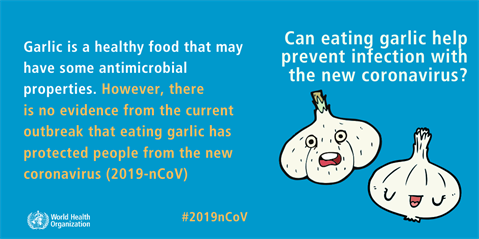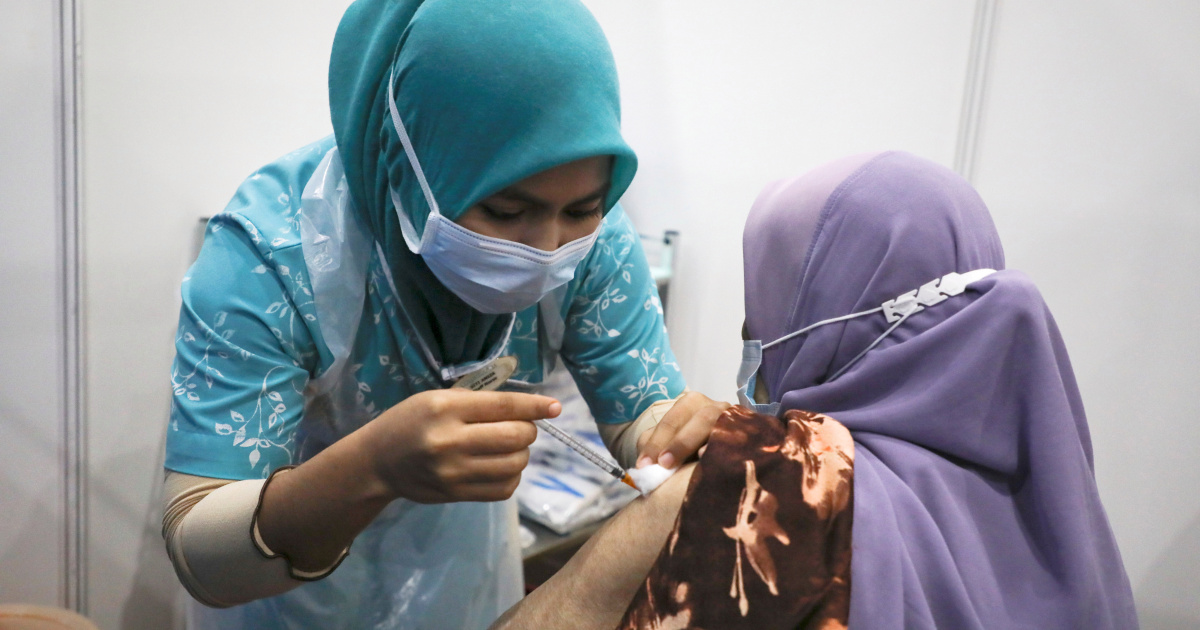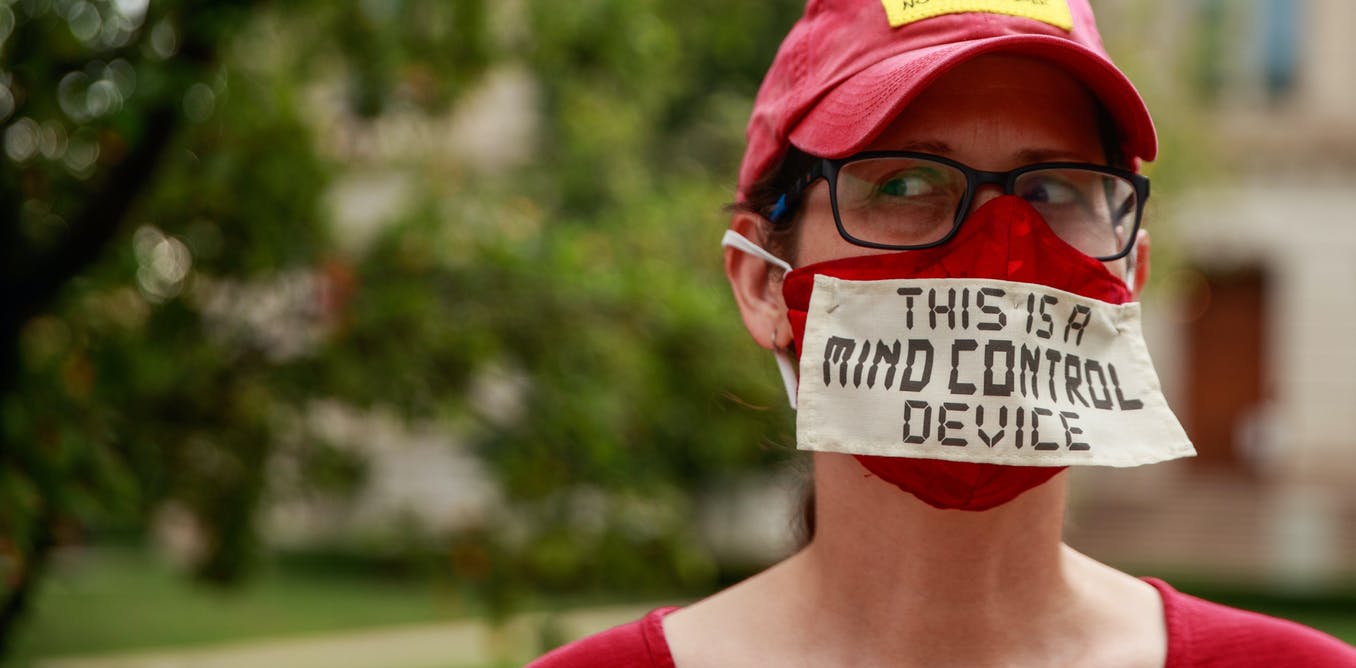
Just like many other Malaysians, a few years back my family set up our own WhatsApp group so that we could keep in touch with each other.
But while it started out normal enough, during the first MCO, I noticed that the messages that were being posted were slowly becoming more and more… difficult to digest.
“Eat more garlic!” one of my older relatives said after forwarding an article from some sketchy website that claims that an Indian doctor has proof that eating garlic will stop COVID-19.
“Oh, that’s interesting!” I thought, still young and naive. “I should learn more about this and see what their research was about.”
Several internet searches later, I realised that my relative — someone who I had loved and trusted for as long as I could remember — was spreading fake news.
Check Your Sources

It wasn’t a conclusion I jumped to immediately, of course.
The WhatsApp message contained no links, so I tried to search for the researcher that it was quoting, only to find no sign of him. Not in any research articles, nor in the staff list for the university that he was supposed to be from.
Even worse, when I looked into the contents of the article itself, I found out that the whole “garlic cures COVID” thing was a myth. There was nothing of it on any mainstream news outlets or medical reports.
Heck, it was literally one of the first things listed in the World Health Organisation’s (WHO) COVID-19 Mythbusters site!
It’s Not My Fault For Spreading Fake News!

Armed with this new information, I replied back to my aunt, warning her that someone had given her the wrong information and that she probably should stop forwarding it.
Her response?
“I’m just trying to give helpful advice…. Take it or leave it…. Why are you being so rude?”
Immediately, I was the bad guy. I was the one expected to apologise for “being disrespectful”.
To make matters worse, none of my other family members were willing to take my side. I even got a message from one of my cousins advising me to drop the matter and “stop trying to pick a fight”.
In the end, I decided to bow out of that conversation and just put the whole group on my mute list. But alas, that wasn’t the end of the matter.
As it turned out, my family isn’t the only one struggling with the problem of fake news.
Fake News, Real Consequences

Some would say that responding to my fake-news-spreading relatives like that was wrong. After all, she had good intentions, right? Why not just leave it be instead of trying to start a fight?
Even if I was right, which I definitely was, was it really worth causing friction among my family relationships just to point out fake news?
Personally, I would say yes. But at the same time, I can understand why so many young Malaysians like my cousins have opted to simply say “Ok, auntie/uncle/grandma/etc.” and ignore all the messages they send.
But while fake news may seem harmless, the consequences it causes are all too real.
Ever since this pandemic began, Malaysians have been absolutely inundated with information from all sides. From government SMS messages in the middle of the night to “helpful advice” forwarded by random relatives from who knows where, it can sometimes be hard to separate the facts from the fiction.
In May 2021, Menteri Besar Datuk Seri Wan Rosdy Wan Ismail raised the alarm after 10,000 Pahang residents no-showed for their vaccine appointments due to fake news.
“There are senior citizens who changed their minds after being influenced by fake news spread by family members, friends or on social media about the vaccine,” he said, urging the younger generation to help out by checking the MySejahtera app of senior family members and reminding them about their scheduled vaccination sessions.
So Why Are People Still Spreading Fake News?

Before the pandemic, fake news wasn’t considered a big deal. After all, who cared if a few kooky people liked to forward posts about how vaccines were bad?
Yet ever since the first lockdown began, it feels like more and more people have begun spreading fake news about the virus and the vaccine despite the government’s best attempts to raise awareness about this issue.
So why are so many Malaysians still spreading fake news all over social media?
SOLS Health-Thrive WellResearch and Advocacy director Dr Arman Rashid reported that many fake news spreaders are affected by something called the “Dunning-Kruger effect”.
Basically, they overestimate what they know and underestimate what they don’t know, leading to strongly held views that they’ll stubbornly stick to despite all the evidence saying they’re wrong.
“Research from a consortium of United States (US) universities found the Dunning-Kruger effect plays an important role in false information and propaganda against vaccinations,” said Dr Arman, who added that social media plays a crucial part in amplifying this effect.
“In most cases, anti-vaxxers seek to influence others as a form of validation and endorsement of their isolated views that they know have been predominantly rejected by mainstream society. They are often motivated by conspiracy theories, particularly about geopolitical powers and pharmaceutical companies.”
Aside from that, medical experts have also raised concerns that some individuals were deliberately spreading fake information in order to promote “alternative products”.
Columbia Asia Hospital medical officer Dr S Malar Santhi gave an example of anti-vaccine groups who tried to sell products to replace the COVID-19 vaccine such as vitamin C, magnesium supplements and even oils.
“That’s what they gain based on my observation,” she said on a Bernama TV programme. “In addition, anti-vaccine groups in the country seem to get a thrill whenever they influence someone to reject the vaccine.”
Can You Get Arrested For Spreading Fake News?

Thanks to the Emergency (Essential Powers) (No. 2) Ordinance 2021 — a new law made in March 2021 — the police can now arrest people for spreading fake news. Those who create, publish or distribute fake news will face a fine of up to RM100,000, a jail term of up to three years or both.
In June 2021, Inspector-General of Police Acryl Sani Abdullah Sani announced that at least 10 people have been arrested for spreading fake news linked to either the COVID-19 pandemic or the emergency declaration.
“The public should also be responsible when sharing anything on social media,” said Acryl Sani, who warned that sharing fake news could negate the government’s efforts to contain the pandemic.
So the next time your beloved auntie or uncle starts talking about how vaccines contain microchips or other conspiracy theories, you should tell them to stop — if not for your sake, then for their own.
How To Get Your Relatives to Stop Spamming Anti-Vax Messages

It can be hard to tell your loved ones that they’re wrong, but at times like this, we need to stop viruses from spreading — both the real world variety and the fake news variety.
Here are a few useful tips to help you confront your fake-news-spreading relatives without causing a big family blowup.
1) Don’t Be Disrespectful
It’s natural to feel annoyed when your relatives start complaining about “disrespect”, but it’s important to keep your cool. Otherwise, the whole conversation will devolve into an argument and your chances of convincing anybody falls to zero.
2) Listen to Their Concerns
Most anti-vaxxers and fake-news-spreaders aren’t actually malicious. In many cases, they may simply be confused and uncertain about the real facts. Try to listen to their concerns and understand their point of view instead of just rebutting everything they say.
3) Guide Them Gently
Give them the information to counter their concerns, but don’t be too pushy about spamming facts and numbers. Instead, say “I just want to make sure that you have the best possible information so that you can make an informed decision”. Let them come to their own decision instead of trying to force it down their throats.
4) Focus On The Positives
A good way to convince people is to reframe the conversation in a more positive manner. Instead of saying things like “People like you are why we’ve been stuck in lockdown for so long!”, try saying “Wouldn’t it be nice for everyone to get vaccinated so that we can go back to normal again?”
5) Know When To Give Up
The sad truth is that it’s very difficult to use facts and logic on someone who’s made their choices for emotional reasons. You can share all the useful information in the world, but there will always be someone who insists that the pandemic is a hoax or that Bill Gates is using the vaccines to put microchips in people.
When it comes to such individuals, it’s better to bow out and let them face the consequences of their own decisions instead of wasting time trying to change their minds.
Family Needs to Stick Together

Even though you might be angry with them today, it’s important to remember that your family members love and care for you. It’s just that this current situation has been stressful for everyone.
Over this past year, the repeated lockdowns have pushed many Malaysians to their limits. Even natural introverts are struggling to deal with being alone for so long!
A lot of this fake news is being spread by people who are becoming overwhelmed by feelings of isolation and loneliness. As such, the easiest way to reduce the spread is to simply stay in touch with your loved ones.
Remember: even a simple phone call or video call can make a world of difference to someone who’s feeling all alone.








